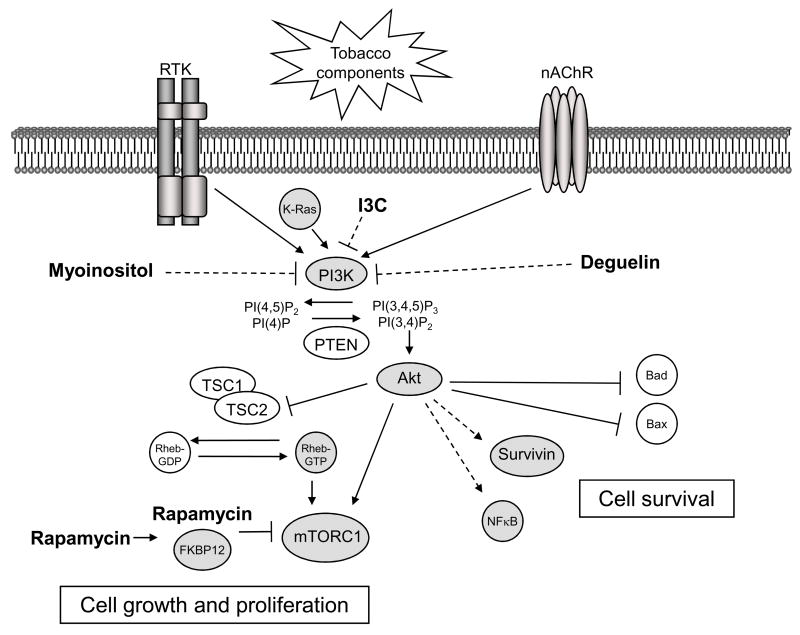Figure 1. Upstream activators and downstream mediators of the Akt pathway in tobacco-carcinogen induced lung tumorigenesis.
Tobacco components stimulate cell surface receptors, such as members of the erbB family of receptor tyrosine kinases (RTK) and nicotinic acetycholine receptors (nAChR), which activate PI3K. PI3K can also be activated through direct interaction with K-Ras, which is commonly mutated in smoking-related lung cancers. The lipid kinase PI3K is required for tobacco-component induced activation of Akt. PI3K phosphorylates the phosphoinositides PI(4)P and PI(4,5)P2 at their D3 position, generating PI(3,4)P2 and PI(3,4,5)P3, respectively. The tumor suppressor PTEN opposes this activity of PI3K. PI(3,4)P2 and PI(3,4,5)P3 bind to the pleckstrin homology (PH) domain of Akt promoting its translocation to the cell membrane and subsequent activation. Akt activation in response to tobacco components increases cell survival by direct phosphorylation and inactivation of the proapoptotic proteins Bad and Bax. Additionally, Akt increases cell survival by indirectly inducing the anti-apoptotic protein survivin and the transcription factor NFkB. Tobacco-component induced activation of Akt can also increase cell growth and proliferation through activation of the mTOR pathway. Akt activates mTORC1 by at least two mechanisms. Akt can activate mTORC1 indirectly by phosphorylation and inactivation of TSC2, which suppresses the activity of the Rheb GTPase, an activator of mTORC1. Akt also directly activates mTORC1 through phosphorylation of PRAS40, a component of mTORC1. Drugs that inhibit the Akt/mTOR pathway could be effective in the treatment of prevention of tobacco-carcinogen induced lung tumorigenesis. The best-characterized inhibitors of this pathway (shown in bold) are rapamycin and its analogues, myoinositol, indole-3-carbinol (I3C), and deguelin. Rapamycin inhibits mTOR by binding to the immunophilin FKBP12. This complex, in turn, inhibits the activity of mTORC1. Conversely, myoinositol, indole-3-carbinol, and deguelin inhibit this pathway upstream of Akt, but whether PI3K is the direct target of these drugs is unclear (this is indicated by the dotted lines).

